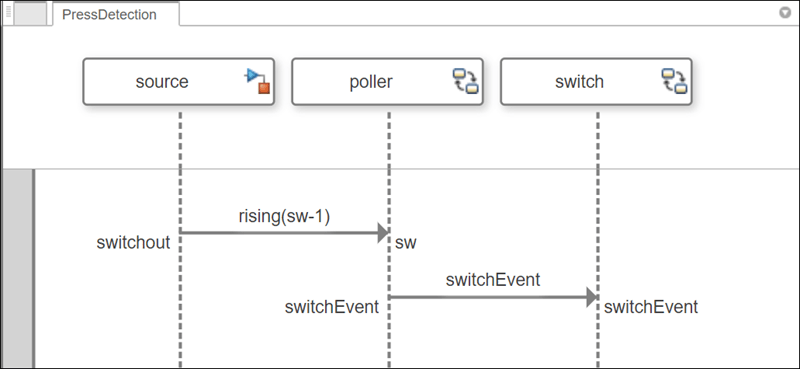systemcomposer.interaction.Interaction
说明
Interaction 对象表示序列图的根层级。交互通过消息交换序列来指定系统各个部分的协作方式。
创建对象
通过相应 systemcomposer.arch.Model 对象的 getInteractions 或 getInteraction 函数访问 Interaction 对象。
属性
对象函数
open | 打开交互 |
addLifeline | 在交互中创建新的生命线 |
addAnnotation | 在交互中创建新注解 |
findLifeline | 查找交互中的生命线 |
findElement | 在交互中查找元素 |
destroy | 移除模型元素 |
示例
详细信息
版本历史记录
在 R2024a 中推出
另请参阅
工具
函数
openViews|sim|addInteraction|getInteraction|getInteractions|open|addLifeline|addFragment|addOperand|addMessage|addDurationConstraint|addAnnotation|findLifeline|findElement|move|move|move|destroy|next|current|reset
对象
systemcomposer.arch.Model|systemcomposer.interaction.Iterator|systemcomposer.interaction.Lifeline|systemcomposer.interaction.MessageEvent|systemcomposer.interaction.FormalGate|systemcomposer.interaction.Message|systemcomposer.interaction.Fragment|systemcomposer.interaction.Operand|systemcomposer.interaction.DurationConstraint|systemcomposer.interaction.Annotation

